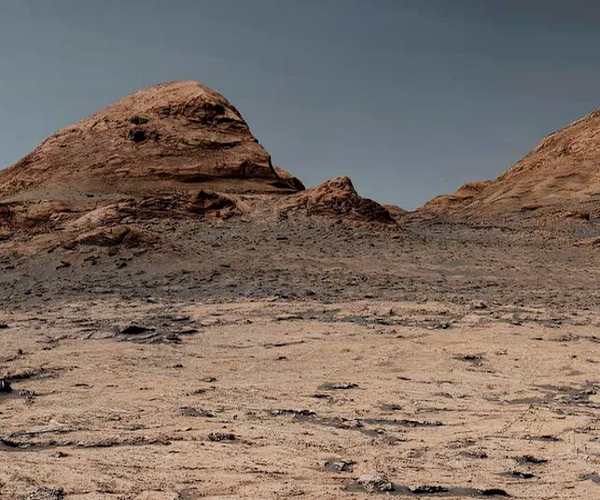Chinese scientists have created an autonomous chemical robot that may be capable of extracting oxygen from water on Mars.
According to the scientific magazine Nature, the robot will employ elements found on Mars to create catalysts that collect water and synthesize oxygen, with the help of artificial intelligence.
According to the research team, artificial intelligence decided that it was possible to examine water, which is known to exist in the form of ice at Mars’ poles and beneath its surface, in a process that would have required two thousand years of human investigation.
Jun Jiang of China’s University of Science and Technology oversaw the research. Jiang and his colleagues analyzed five meteorites recovered from Mars or Earth using a mobile gadget the size of a refrigerator equipped with a robotic arm.
Chinese researchers have created a robot chemist powered by artificial intelligence (AI) that might extract oxygen from water on Mars. The robot creates catalysts from elements discovered on Mars, which break down water and release oxygen. The concept might be used to supplement existing oxygen-generation technologies or to spur the development of additional catalysts capable of synthesising useful materials on Mars.
“If you think about the challenge of going to Mars, you have to work with local materials,” Andy Cooper, a chemist at the University of Liverpool in the United Kingdom, explains. “So I can see the logic behind it.”
Jun Jiang of the University of Science and Technology of China in Hefei led the study, which was reported in Nature Synthesis1. Jiang and his colleagues examined five meteorites that had either come from Mars or had been recovered on Earth but resembled the Martian surface using a transportable gadget the size of a refrigerator with a robotic arm. The team’s goal was to see if the machine could make effective catalysts from the material.
The AI-powered device dissolved and separated the material using acid and alkali, then analyzed the resultant components. These were then used to search through more than 3.7 million equations for a chemical that might break down water, which is known to exist as ice at Mars’ poles and beneath the planet’s surface, a procedure that the team estimated would take a human researcher 2,000 years. The end result was an oxygen-evolution reaction catalyst capable of releasing oxygen from water, which might be used on a future Mars trip.
“We have developed a robotic AI system that has a chemistry brain,” Jiang said. “We think our machine can make use of compounds in Martian ores without human guidance.”

